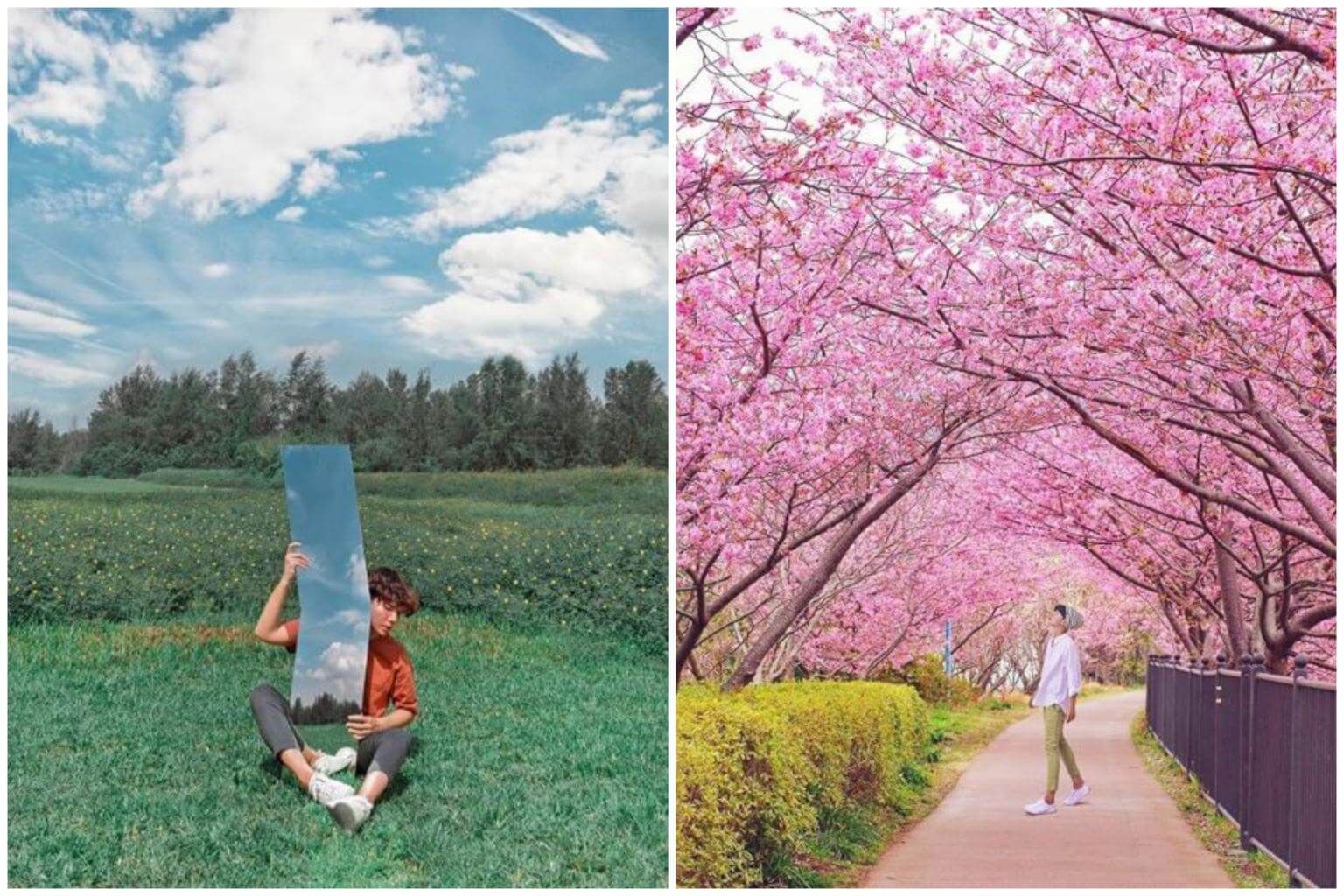Singapore photographer Daryl Aiden Yow sorry for passing off stock images as his own on Instagram
Sign up now: Get ST's newsletters delivered to your inbox

Singaporean influencer Daryl Aiden Yow was recently accused of copying others' works, as well as using stock photos for his Instagram posts.
PHOTOS: INSTAGRAM/DARYLAIDEN
Charmaine Ng, Isabelle Liew
Follow topic:
SINGAPORE - A Singapore photographer has apologised for passing off stock images on his Instagram account as his own and using the doctored images to promote products and services.
Mr Daryl Aiden Yow, 27, posted his apology on his Instagram account on Thursday (June 21), one day after local news site Mothership reported that it suspected him of doctoring stock images.
Mr Yow said: "The outrage regarding how I have conducted myself is justified and I accept full responsibility for my actions and all consequences that arise from those actions.
"I was wrong to have claimed that stock images and other people's work were my own. I was also wrong to have used false captions that misled my followers and those who viewed my images. Having marketed myself as a photographer, I fell far short of what was expected of me and disappointed those who believed - or wanted to believe - in me. For all of that, I apologise."
In the Mothership article, the website pointed out that many of Mr Yow's Instagram photos looked like stock images found on royalty-free stock photo sites, including Shutterstock and Getty Images.
In the caption for a photograph showing a whitewash building set against turquoise waters with bougainvillea flowers in the foreground, Mr Yow had said that it was of the Greek island Santorini and that he had captured the shot with the Sony a7R II. He added: "Look at the kind of colours this camera produces!"
Mothership said the picture bears a striking resemblance to a Shutterstock image.
In another sponsored post, Mr Yow can be seen holding a camera standing in an alley. The image of the alley, sans Mr Yow, was found on stock image site Depositphotos. The two photos and other images have been deleted from Mr Yow's Instagram account.
When contacted before Mr Yow posted his apology, Sony Singapore said that it is looking into the matter.
In response to queries from The Straits Times, it said on Thursday: "We are surprised and disappointed with what has been reported and are currently looking into this matter. Sony strongly encourages the art of creativity, however, we do not condone any action such as plagiarism and take a serious stance on it."
When asked if Sony was aware that Mr Yow had used stock photos on Instagram, a spokesman declined to comment further.
Another of Mr Yow's clients, Uniqlo, said it had engaged him for a one-off travel campaign a year ago and he conducted an in-store talk about his travels.
Mothership said that Mr Yow started crediting the stock images after its article was published.
In an interview with news site Mustsharenews on Wednesday (June 20), Mr Yow said that he had paid for the stock images and that his clients are aware that he had purchased stock images for the promotional posts. He has more 100,000 followers on Instagram.
In response to queries from ST, Mr Dennis Toh, founder of influencer marketing and media agency The Influencer Network, said there is "nothing wrong" with social media influencers buying stock photos to repost on their own feeds.
"However, if there's an intention to deceive or misrepresent, which in this case he is a photographer, then the act has infringed good ethical boundaries," he added.
He said: "When we work with influencers, we would check whether their numbers (of followers) are authentic. But for content, we don't because it's their prerogative."
The issue of plagiarism and infringement of intellectual property rights is "common" on social media, said content strategist Lydia Wulandari from social media marketing agency Hashmeta.
"As a photographer, (Mr Yow) used other people's content to increase his followers, popularity and ironically, his legitimacy in the trade. There are other influencers who have done the same, and we do not expect this problem to go away anytime soon," she told ST.
She added that while it is difficult to spot plagiarised work at a glance, there are tools that agencies can use to ensure that content produced is original.
She added that while it is difficult to spot plagiarised work at a glance, there are tools that agencies can use to ensure that content produced is original.
Note: This story has been edited for clarity.

